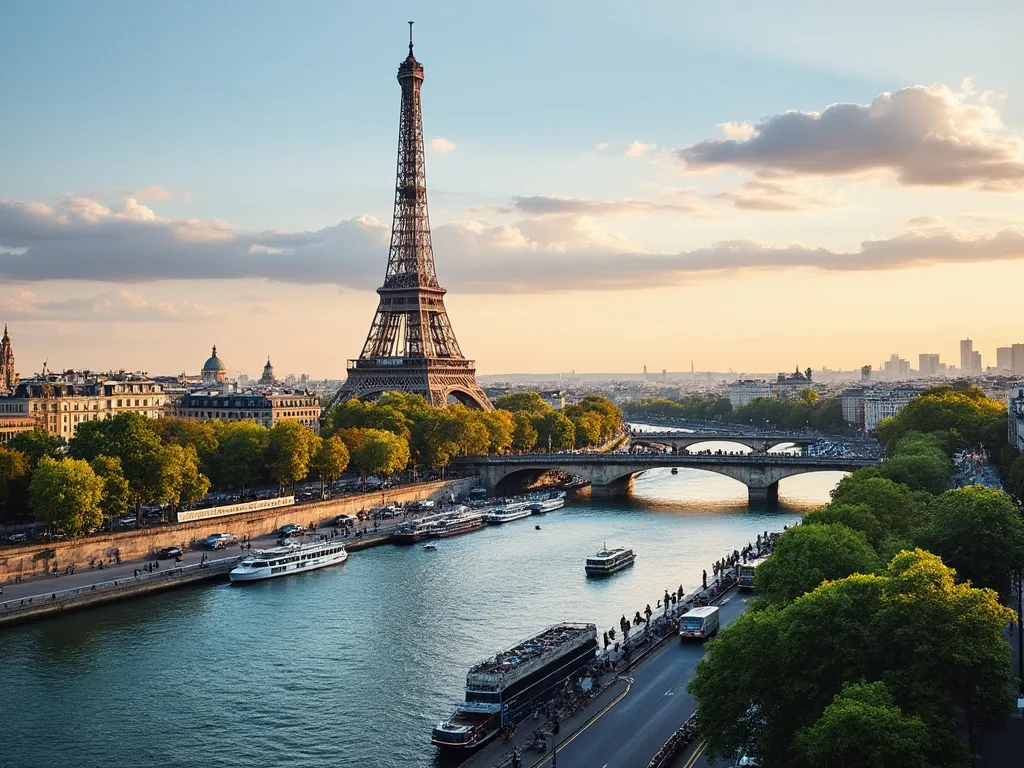
Paris, the capital of France, is one of the most iconic and romantic cities in the world. Known as the City of Light, Paris has been a center of culture, art, fashion, and cuisine for centuries. From the Eiffel Tower to the Louvre Museum, Paris is home to some of the world's most famous landmarks and attractions.
Paris information
| Country | 🇫🇷 France |
| Population | 2,165,000 (city), 12,244,000 (metro) |
| Coordinates | 48.8567° N, 2.3508° E |
| Area | 1,054 km² (407 sq mi) |
| Climate | Temperate oceanic climate (Köppen: Cfb) |
| Language | French |
| Currency | Euro (€) |
| Time zone | Central European Time (CET) (UTC+1) |
| Proximity to other major cities | Lyon (465 km), Marseille (773 km), Bordeaux (579 km) |
Interesting facts about Paris
- Paris is home to over 6,000 streets and 20 arrondissements (districts).
- The Eiffel Tower is the most-visited paid monument in the world, with over 7 million visitors per year.
- Paris is home to the world's largest art museum, the Louvre, which attracts over 10 million visitors per year.
- The city is home to over 150 museums and galleries, including the Musée d'Orsay and the Centre Pompidou.
Tourist attractions in Paris
- The Eiffel Tower
- The Louvre Museum
- The Notre-Dame Cathedral
- The Arc de Triomphe
- The Champs-Élysées
- The Montmartre neighborhood
Historical background of Paris
Paris has a rich and storied history that dates back to the 3rd century BC. Founded by the Celtic tribe known as the Parisii, the city was later conquered by the Romans and became an important center of trade and commerce. During the Middle Ages, Paris became a major center of learning and culture, and was home to some of the most important universities in Europe.
Geographical location of Paris
Paris is located in the north-central part of France, in the Île-de-France region. The city is situated on the Seine River, which flows through the heart of the city and provides a picturesque backdrop to many of Paris' famous landmarks. The city is surrounded by a number of hills and forests, including the famous Bois de Boulogne and the Bois de Vincennes.
Cultural significance of Paris
Paris is known as the City of Light, and for good reason. The city has been a center of culture, art, and literature for centuries, and has been home to some of the most famous artists, writers, and intellectuals in history. From the Impressionist movement to the existentialist philosophers, Paris has been a hub of creative and intellectual activity.
Economic importance of Paris
Paris is one of the most important economic centers in Europe, and is home to many of the world's largest and most influential companies. The city is a major center of finance, commerce, and industry, and is home to the Paris Stock Exchange and the European Central Bank.
Conclusion on Paris
In conclusion, Paris is a city that has something for everyone. From its rich history and culture to its stunning landmarks and attractions, Paris is a city that is sure to leave a lasting impression on all who visit.
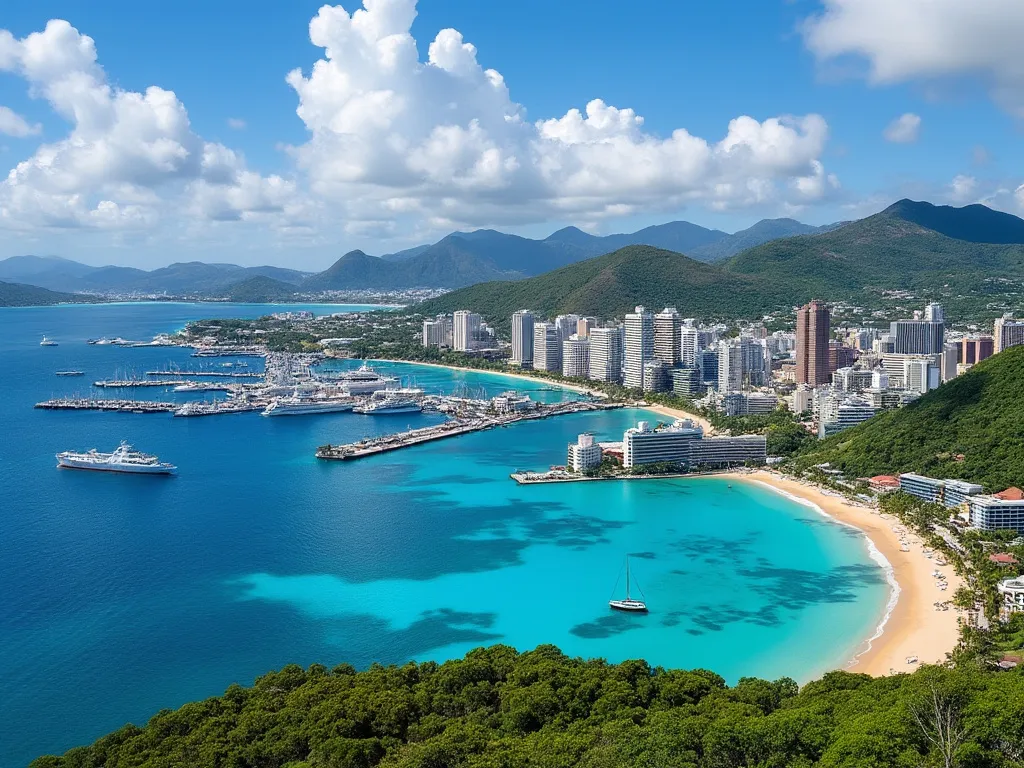 Philipsburg
Philipsburg
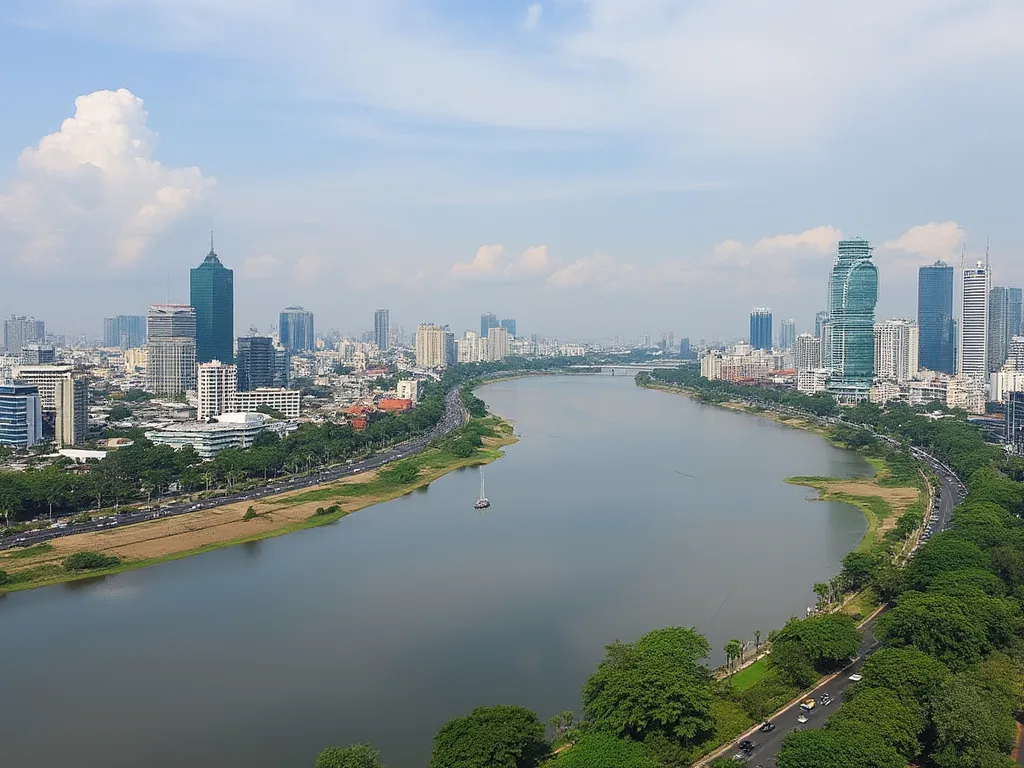 Phnom Penh
Phnom Penh
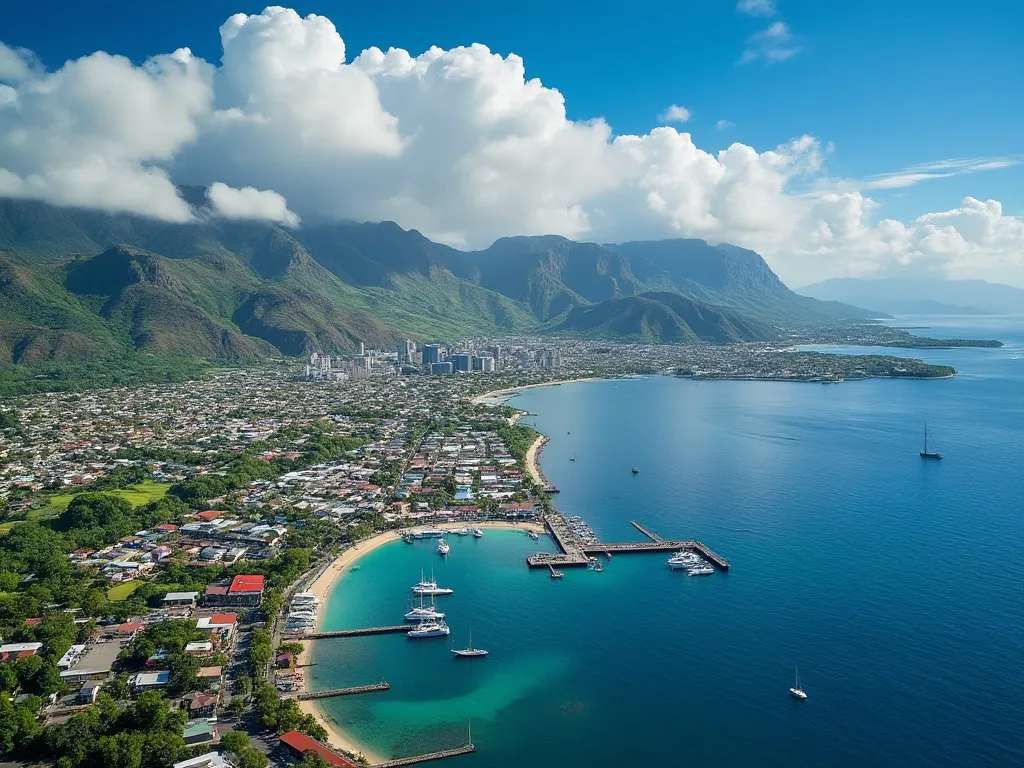 Papeete
Papeete
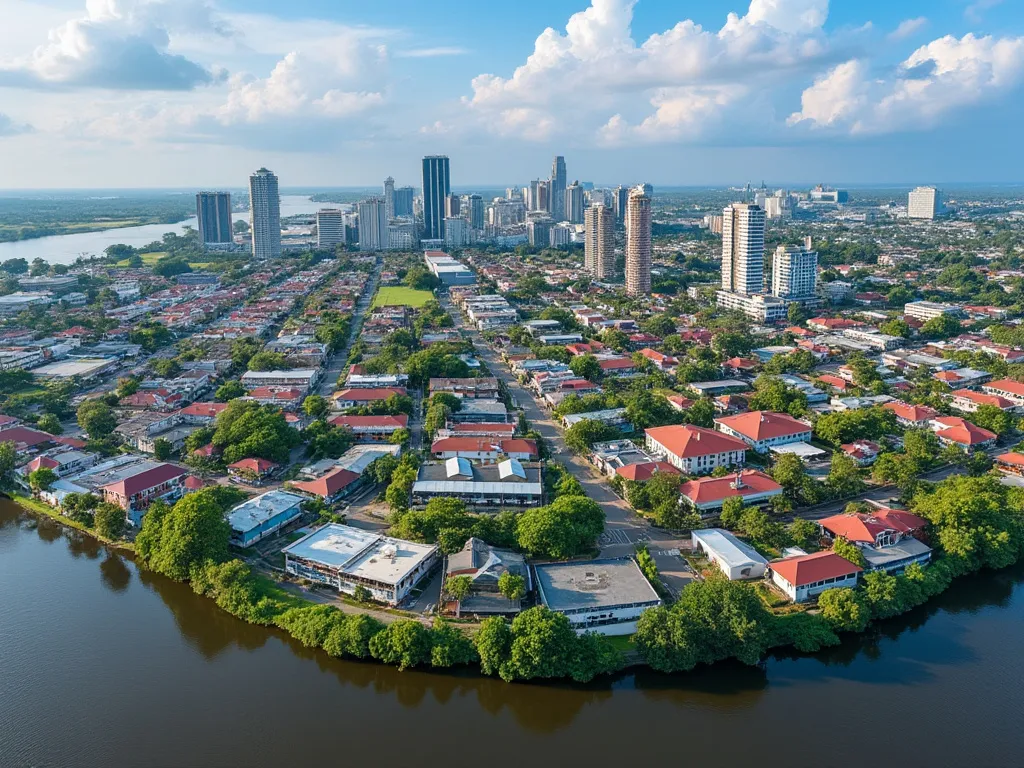 Paramaribo
Paramaribo